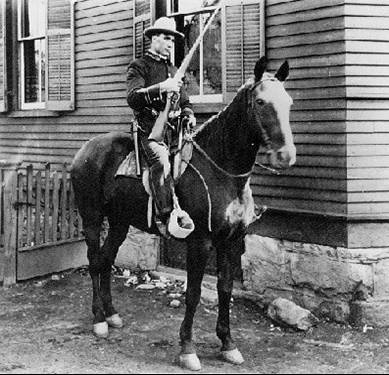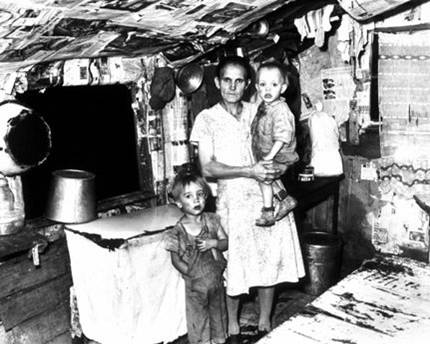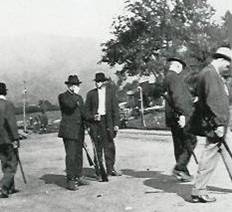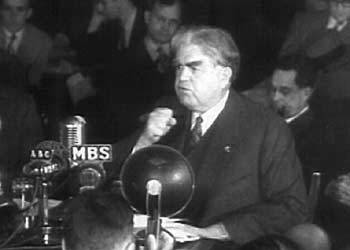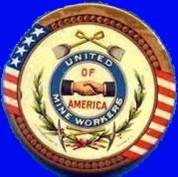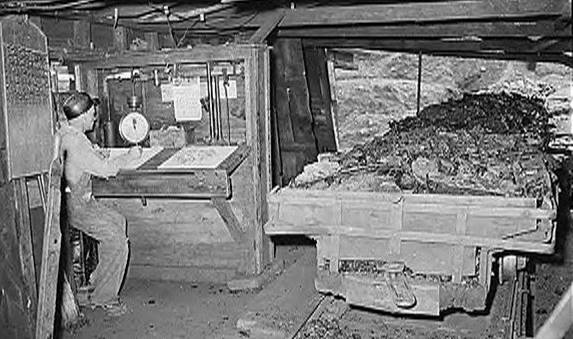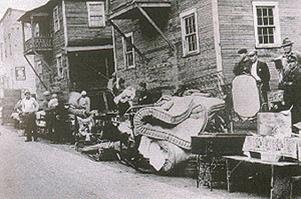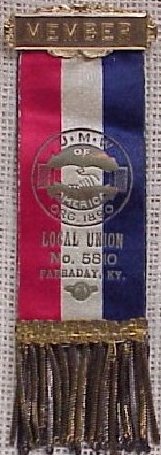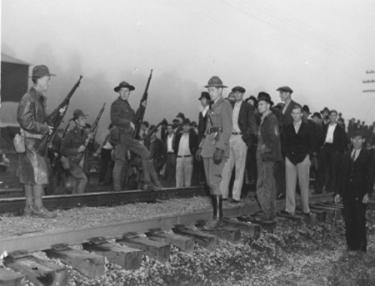
LABOR PROBLEMS
In Kentucky, and other coal mining states, coal companies hired their own mine guards or hired private agencies to provide them. These private guards were the company muscle used to keep union organizers out of the coal mines and company towns, and to intimidate the miners and their families. Known as “gun thugs”, they protected scab labor during strikes and evicted striking miners from company housing. The mine operators generally controlled the county sheriff and were able to have their private guards deputized. The political clout of the coal companies could induce governors to mobilize National Guard troops to “protect” company property during strikes.
One of the major complaints of coal miners was the method of payment and measurement used by the coal companies for the coal mined. The company paid the miners by the long ton of 2200 pounds, and sold the coal by the short ton of 2000 pounds. Another complaint was that the person weighing the loaded coal cars was a company man who could be induced to under-weigh the coal, thus cheating the miners out of tonnage. Another practice was not to pay for coal cars that had too much rock, or slack, unfortunately for the miner it was the company weighman who decided what was too much. A miner could easily be cheated out of payment for 5 tons of coal for a few pounds of rock and he had no recourse. One demand of organized labor was a “check-weighman” who worked for the miners, not for the company.This was a point of contention for many years in coal mines throughout the country.
An example of company owned housing at the Coleman Fuel Co. Redbird Mine at Field in Bell County. This "house" rented for $6 a month.
Private mine guards at a Harlan County coal mine in 1932.
Striking miners were evicted from company housing with their families and possessions.
Baldwin-Felts Detective Agency mine guard
National Guard troops used to "keep order" in the 1939 Harlan County coal miners’ strike.
The 1920s and 1930s were the decades of the worst labor problems in Kentucky coal mines. Coal mine owners refused to employ unionized miners, firing union miners and evicting them from company housing. Union organizers were run out of company towns and beaten by mine guards, in many cases with the backing of the sheriff. Even after mines in other Kentucky counties accepted unionized labor, the coal mine operators in Harlan County refused to employ union miners. The continuing, and often violent, labor dispute won Harlan County the title of “Bloody Harlan”
The union which was finally able to organize Kentucky miners was the United Mine Workers of America, led by firebrand President John L. Lewis, himself a former Iowa coal miner. The UMWA came to dominate the representation of union miners over the Progressive Miners Union and the Western Federation of Miners. It was through the efforts of the UMWA that Kentucky coal miners finally won the right to unionize and bargain for wages and benefits.
John L. Lewis, President
United Mine Workers of America 1920-1960
